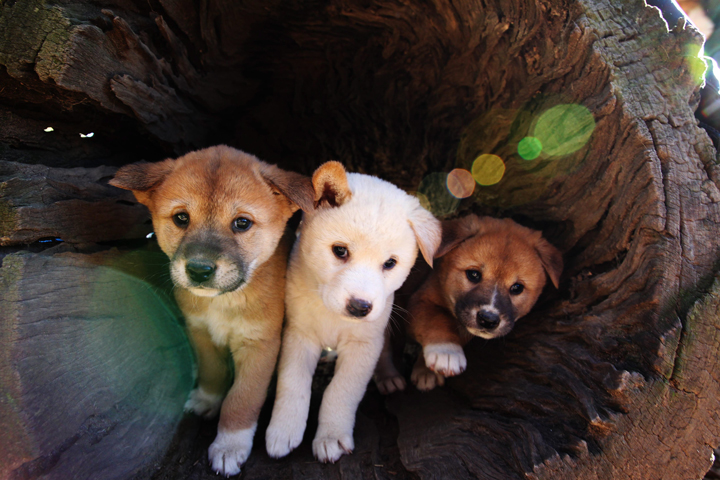Anyone who’s had a pet knows the thought of losing them can be incredibly painful. Now, it seems, one Ontario man has found a way to ensure he keeps his fido around forever.

“I made a commitment in my head… that I’m going to clone my dog,” Matthew Johnson of Cedar Valley, Ont. told the Toronto Star.
The 37-year-old recently paid $50,000 USD to give his dingo-shepherd cross Woofie a second lease on life.
Johnson found her 20 years ago in New Zealand. The three-week-old pup had been abandoned in a garbage bag so the Ontarian brought her home.
They’ve since travelled the world together, and Woofie earned her keep with a stint in search and rescue and a role in the movie Doggie Daycare.
The paycheque she earned from the film is how Johnson was reportedly able to pay the pricey cloning bill.
He explained that the dog helped him through tough times five years ago, when he suffered a serious bout of bacterial meningitis.
“I was dying and in palliative care for months. I had to learn to walk, talk and was all messed up. She was the only reason I didn’t kill myself or let go.”
WATCH: Over half of people in B.C. love their dog more than their spouse, a recent poll found

Johnson owns two other dogs from a shelter. When asked why he doesn’t just adopt another one (since so many unwanted pets are put down each year), he said his bond with Woofie is one of a kind.

Get breaking National news
READ MORE: Dogs understand what we say, study shows
One would think that bond is, in large part, due to the dog’s personality — and can that really be duplicated?
ViaGen Pets, the U.S. cloning company Johnson used, claims “many of the traits that form ‘personality’ are genetic.”
“Most of our clients are amazed at the similarities,” CEO Blake Russell told Global News in an email. “We have delivered both cloned puppies and kittens to clients from around the world.”
Russell launched the business last year and now has “a waiting list of clients contracting to clone their cherished dog or cat.” He won’t say exactly how many pets he’s cloned, though, or how many of them were ordered by Canadians.
Another similar business in South Korea charges close to $100,000 USD (nearly $140,000 CAD) for its services and has reportedly cloned hundreds of dogs.
READ MORE: South Korean scientist wants to clone extinct Siberian lion cubs
At least a couple of those pups went to a British couple, who sent over their dead dog’s DNA 12 days after he died last year.
Kerry Bowman, a University of Toronto bioethicist, said then that there’s a whole host of problems with this concept.
“People have a science fiction belief that a clone is identical — like there’s two dogs with the same mind and same consciousness and the same everything. That’s not what a clone is. A clone is a different animal with the same DNA, that’s no different than a human twin.”
WATCH: Alberta dentist who purchased John Lennon’s tooth hopes to clone him
He argued there are also serious ethical questions surrounding pet cloning.
“A lot of clones when they are born in fact have a lot of physical problems. They die younger, they can have some deformity, they can have health problems.”
ViaGen Pets’ CEO, however, insists it’s “well documented that cloned animals live normal, healthy lives” with the same life expectancy as a “normal” dog.
This year the clones of “Dolly the sheep,” who died young, turned nine.
As for Johnson, he has to wait at least six to 12 months for Woofie 2.0 to arrive. He told The Star he can’t wait to “introduce Woofie to herself.”
— With files from Christina Stevens, Global News


Comments